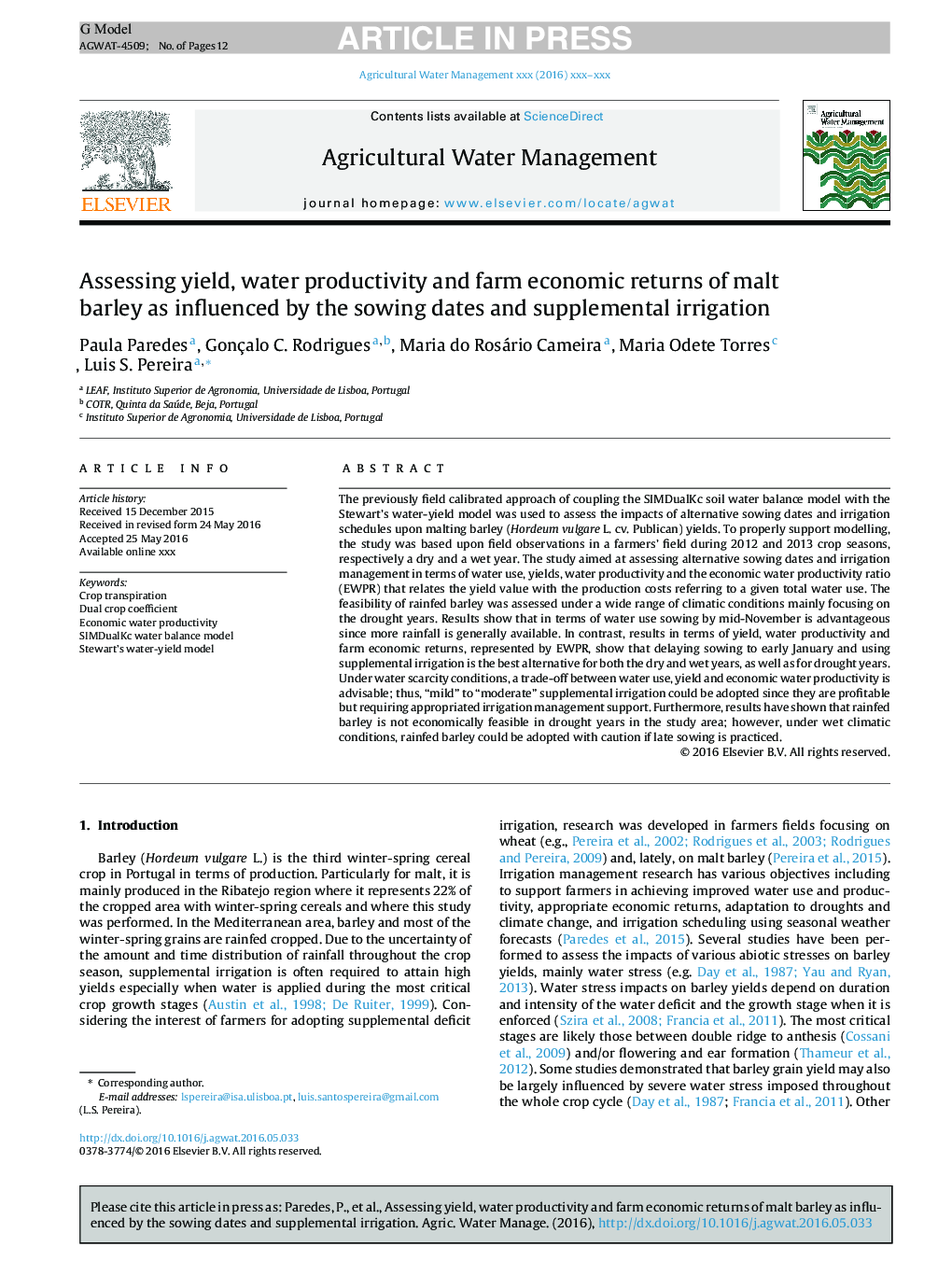| Article ID | Journal | Published Year | Pages | File Type |
|---|---|---|---|---|
| 5758598 | Agricultural Water Management | 2017 | 12 Pages |
Abstract
The previously field calibrated approach of coupling the SIMDualKc soil water balance model with the Stewart's water-yield model was used to assess the impacts of alternative sowing dates and irrigation schedules upon malting barley (Hordeum vulgare L. cv. Publican) yields. To properly support modelling, the study was based upon field observations in a farmers' field during 2012 and 2013 crop seasons, respectively a dry and a wet year. The study aimed at assessing alternative sowing dates and irrigation management in terms of water use, yields, water productivity and the economic water productivity ratio (EWPR) that relates the yield value with the production costs referring to a given total water use. The feasibility of rainfed barley was assessed under a wide range of climatic conditions mainly focusing on the drought years. Results show that in terms of water use sowing by mid-November is advantageous since more rainfall is generally available. In contrast, results in terms of yield, water productivity and farm economic returns, represented by EWPR, show that delaying sowing to early January and using supplemental irrigation is the best alternative for both the dry and wet years, as well as for drought years. Under water scarcity conditions, a trade-off between water use, yield and economic water productivity is advisable; thus, “mild” to “moderate” supplemental irrigation could be adopted since they are profitable but requiring appropriated irrigation management support. Furthermore, results have shown that rainfed barley is not economically feasible in drought years in the study area; however, under wet climatic conditions, rainfed barley could be adopted with caution if late sowing is practiced.
Related Topics
Life Sciences
Agricultural and Biological Sciences
Agronomy and Crop Science
Authors
Paula Paredes, Gonçalo C. Rodrigues, Maria do Rosário Cameira, Maria Odete Torres, Luis S. Pereira,
